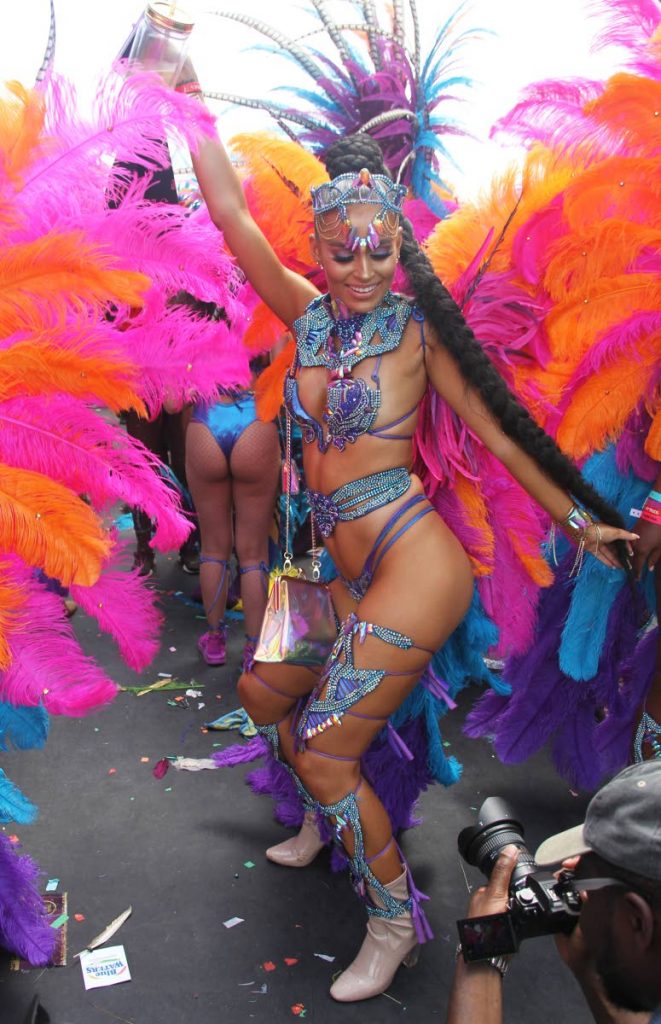Is Carnival in danger?

LINUS F DIDIER
THE RECENT announcement by Minister of National Security Stuart Young and supported by Commissioner of Police (CoP) Gary Griffith and acting Prime Minister Colm Imbert that Carnival should end by 9 pm on Carnival Tuesday, starting in 2020, at first seemed innocuous.
The rationale given was for “security” reasons.
However, a closer study shows that a concerted effort is now under way to emasculate key elements of our Carnival.
I will start with the 2019 Panorama finals. This show ended somewhere between 3 and 4 am on Carnival Sunday. No one has given a reason why, so I will.
The police refused to allow the crew/supporters of each band to take the pans off the stage. It meant that the very tired pan players had to remove them themselves. This had a domino effect in terms of the time a band took to exit and the next one took to come on stage.
This change was not communicated prior, either by the police or by Pan Trinbago, to the respective bands. One can only deduce that the decision was made by the police on the night of the finals.
For the semi-finals, which finished before 11 pm, there was no problem, with supporters quickly removing the pans off the stage.
The second issue has to do with who will benefit from an earlier end to Carnival. The “national security forces” claim that carnival in other countries ends well before midnight.
There are pros and cons to this statement as applied to TT. Since when is TT Carnival run according to what happens in other countries. It is well known that we do not like to follow rules unless there is someone with a big stick hanging around.
Truck DJs can lower their music a bit, especially in residential areas, in the evening.
In Woodbrook, residents have complained, for years, about unruly masqueraders dirtying their walls, and spray-painting their vehicles. These activities do not all happen in the evening but also during the day.
Each aspect of Carnival caters to specific audiences at specific times. For example, there are people who only come out on Tuesday evening to participate in Las Lap. There are some who only come out on Monday evening for night mas.
The biggest losers will be the small entrepreneurs who make most of their money at Carnival. Three hours are a long time.
It seems that the bourgeoisie are calling the shots this round. Do not be surprised if the Carnival shutdown moves to 9 pm next year, then to 6 pm in 2021, then to 3 pm in 2022.
This move was a long time in the making and was surreptitiously practised, by the police, in some areas in 2017 and 2018. There was no outcry.
A third issue is that there is now talk that the Canne Brulee (burnt cane) celebrations (Canboulay) held at Piccadilly Street should be confined to a theatre somewhere, instead of being on the street, due to “security” reasons. It seems that a 4 am start for this show, on Carnival Friday, is now cause for concern.
A fourth issue is that in the calypso arena, not a single calypso at the finals was critical of the PNM Government in any way, shape or form. It could not have been for lack of material. This was self-censorship at its best. It was an observation noted by several people including Pundit Satyanand Maharaj.
Finally, Pearse (1956, pg 22) wrote that “the custom of keeping Carnival by allowing the lower order of society to run about the streets in wretched masquerade belongs to other days and ought to be abolished in our own.”
This statement was made by the plantocracy, in 1838. They were totally against the freed slaves participating in Carnival.
It is important to note the role of the police in trying to marginalise Carnival in the 19th century. Captain AW Baker was the chief of police from 1877 to 1888. He was, previously, an army man who “retired from the army as a lieutenant but fraudulently claimed the rank of captain” (Trotman, 1986, pg 92).
“Under his command, the police declared war against the public on all fronts, under the banner of law and order and under the pretext of stemming the tide of rising criminality” (Trotman, 1986, pg 92). His actions led to the Carnival riots of 1881 (Brereton, 2004).
It is no doubt – nor accident – that the current moves are obviously being orchestrated by the police. There is a disconnect in the message that the 2019 Carnival was one of the safest ever and the move to shorten the time in 2020.
Almost 182 years later, history seems to be slowly repeating itself.


Comments
"Is Carnival in danger?"